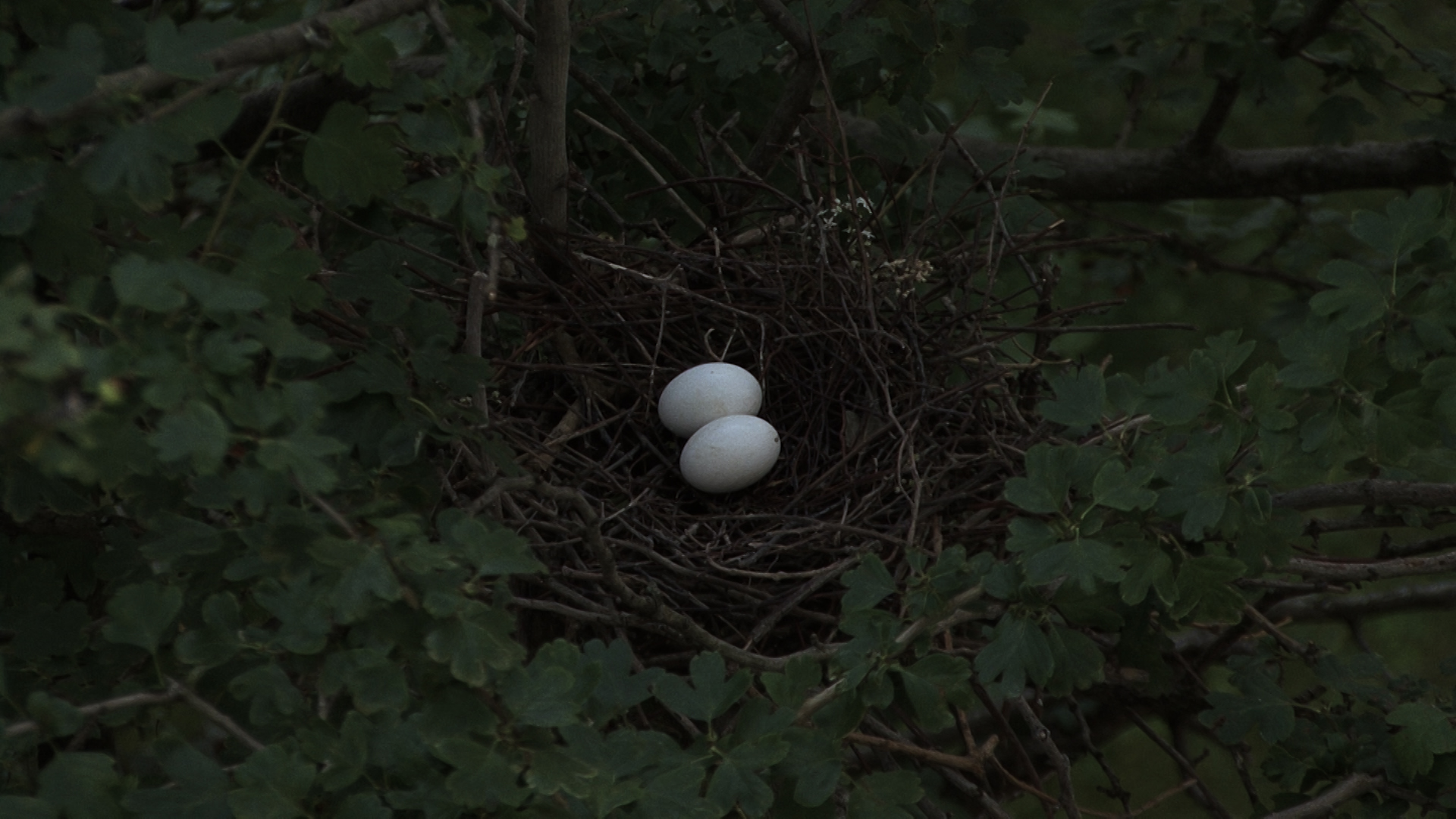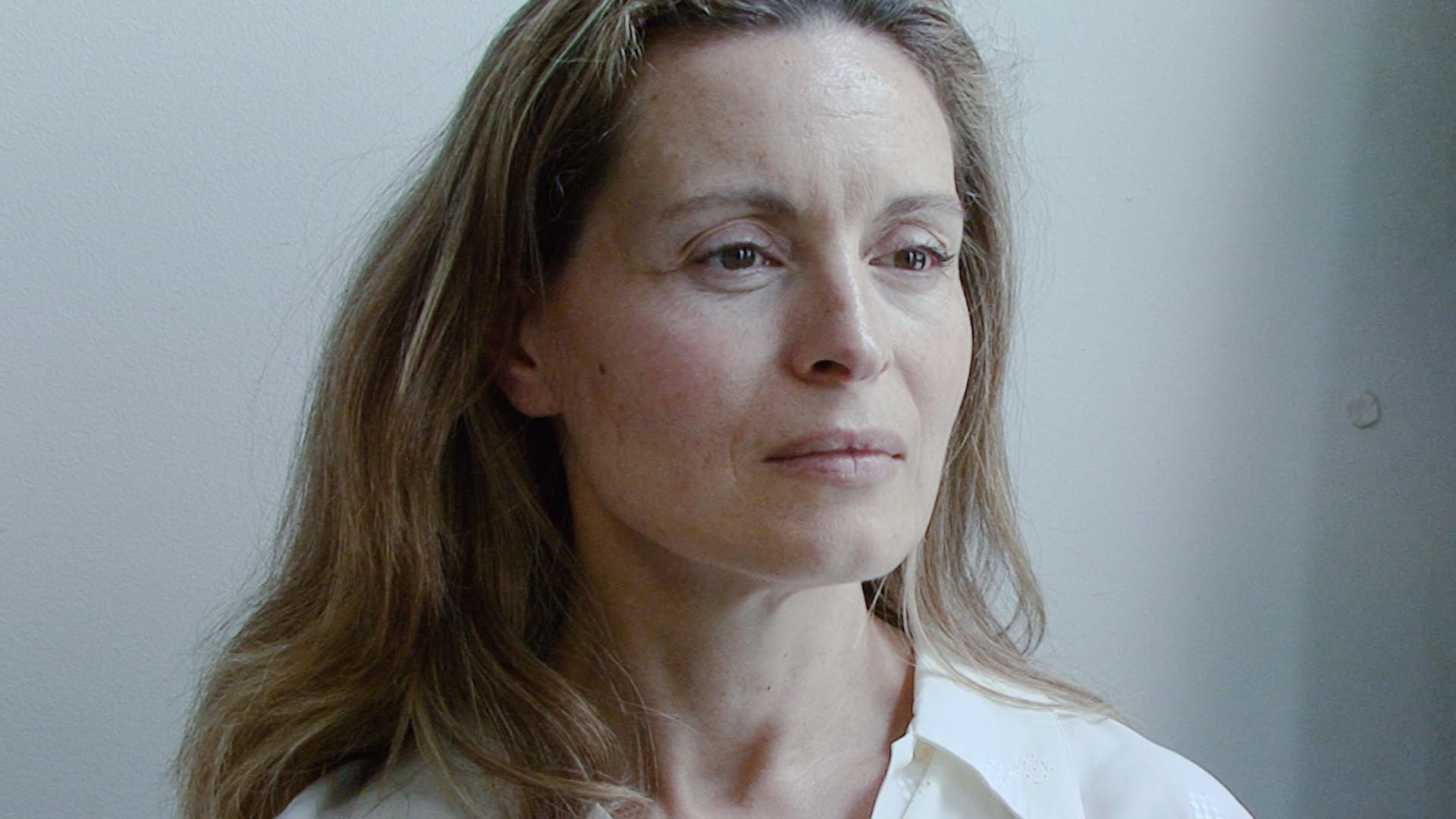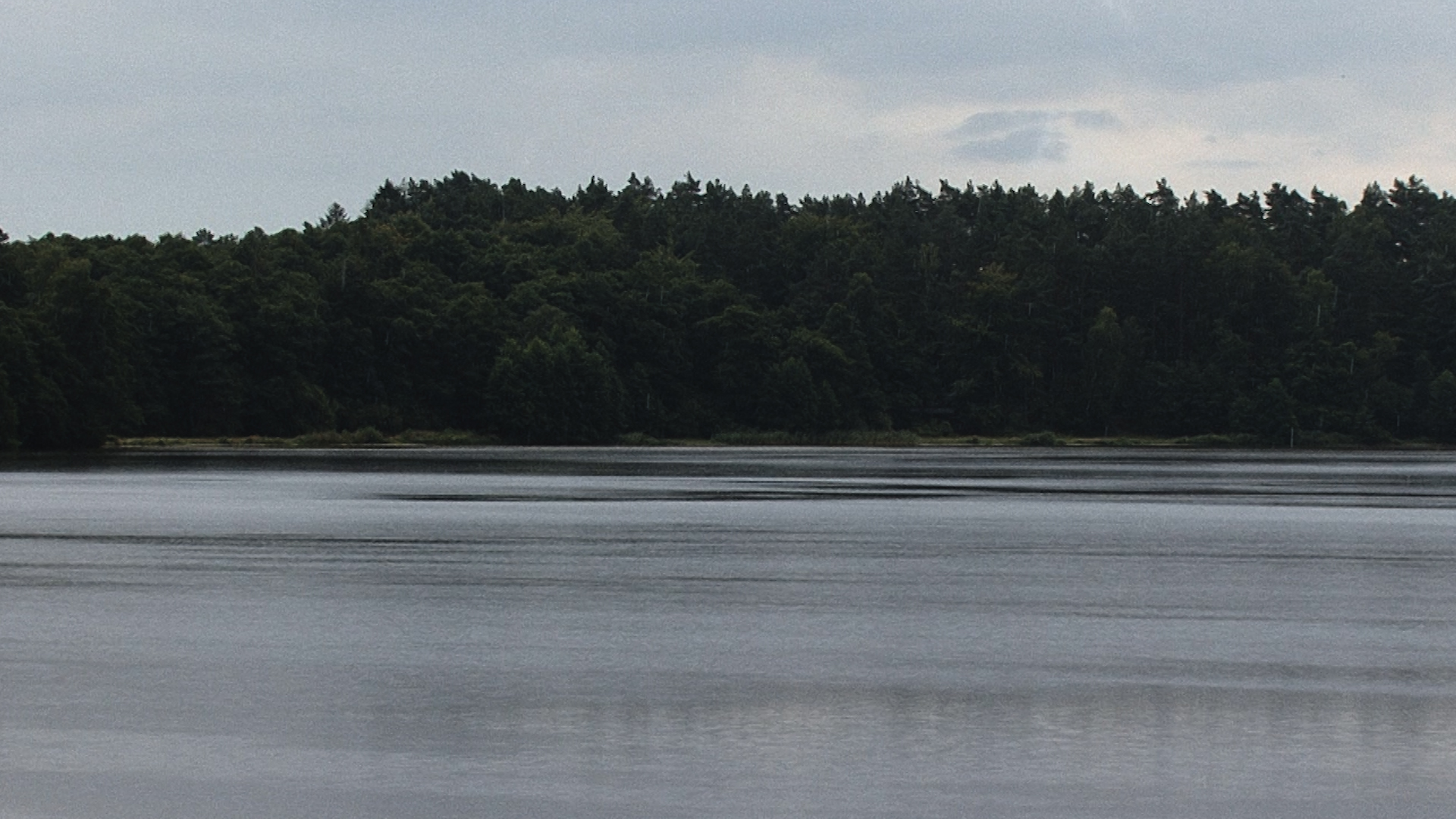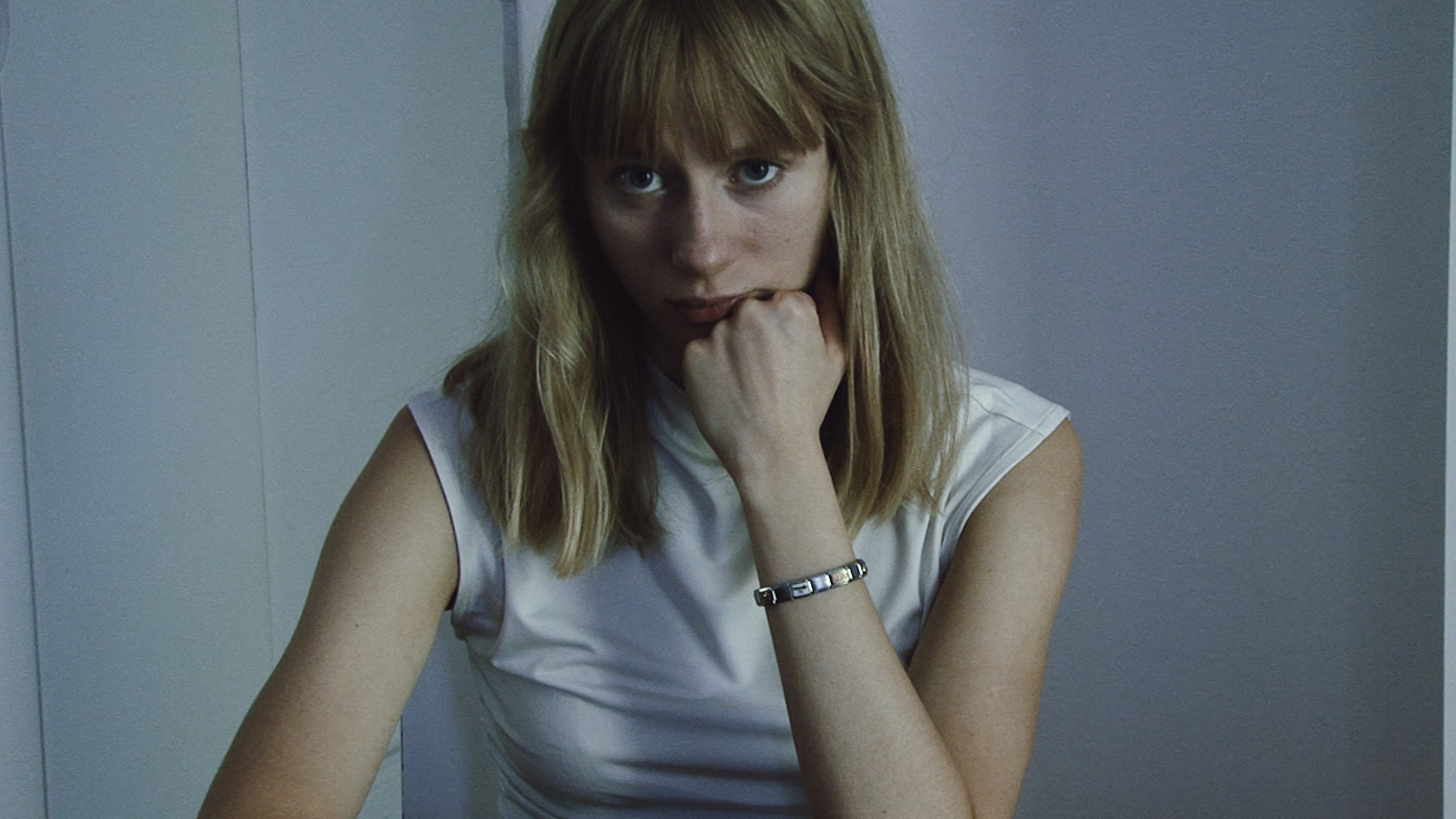“Attachements”, a film with the participation of two actresses, Émilie Favre-Bertin and Aleksandra Rykowska, talks about unconsciously inherited stories and the experience of loneliness experienced by women.
Title “Attachments” refers to the notion of attachment developed by John Bowlby (1907-1980), an English psychiatrist and psychoanalyst, and can be explained as the bond that humans create with their parents during their childhood. I use it in plural to describe attachment patterns created and transmitted by different generations of a family, especially between women. In the film, we can see two female subjects: one evoking a maternal figure, the other – adolescence. They are always in domestic spaces, without ever being together. At the same time, in the context of nature, near a lake, there is a pigeon nest. We can see all the stages of development of pigeons alongside their mother, from birth to when the pigeons finally leave the nest. This symbolic image becomes the axis of the film, evoking the cycle of life with all the natural stages of growth, through the process of growing up, gaining independence, until separation.
In families in which one or more traumatic events have occurred, the following generations can also be affected, as well as their attachment model. The black and white part of the film, which seems to be detached from the context of the lake, as if out of time, refers to the past. An adolescent figure remains inside a wooden house, in a frozen emotional state, and, at a certain point, leaves the enclosed space, to find herself in nature. This passage outside, symbolizing liberation, can be found in my other video- and photographic works, as nature also plays an important role in my work.
At the beginning of my work on the film “Attachements”, I went to Eastern Poland to do location scouting and research on the history of my maternal family. In the video, the spaces where the two characters are located are not fully defined, but their environments evoke the natural landscape of Poland, as well as fragments of French architecture and interiors. For me, the film evokes the notions of distance and proximity, it depicts the subtleties of a mother-daughter relationship, with a context of migration in the background, and it takes a critical look at the association of women with the domestic space.




2024
With the participation of Émilie Favre-Bertin and Aleksandra Rykowska